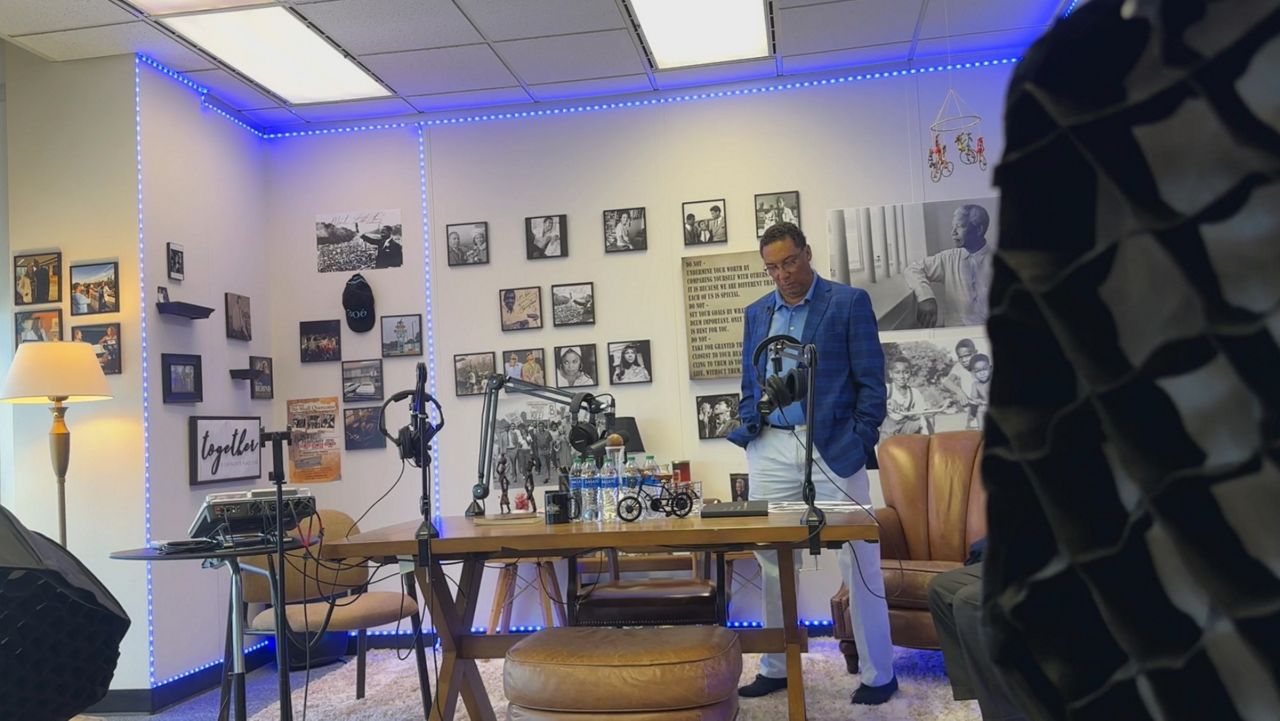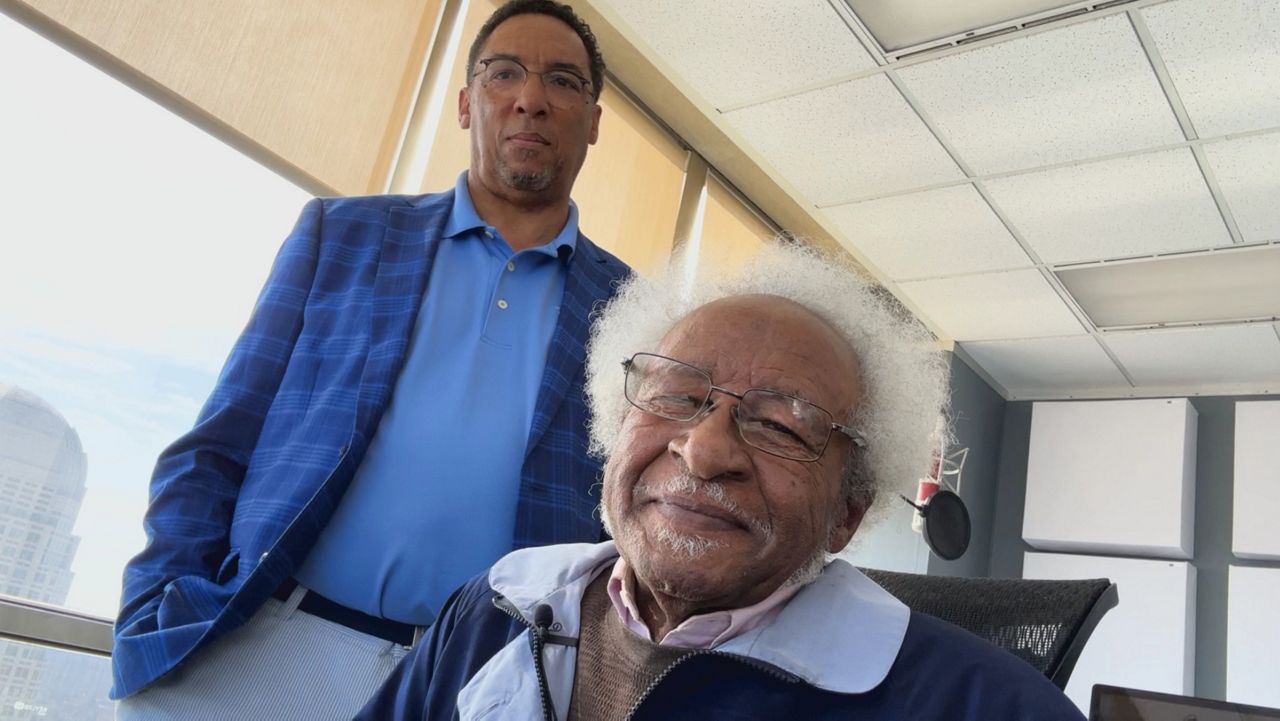WINSTON-SALEM, N.C. — A name can finally be put to the face of the man behind the counter in a picture known around the world.
What You Need To Know
- The Greensboro sit-in happened 64 years ago
- Garrett Davis' interview, "The Man Behind the Counter," premieres at the International Civil Rights Museum on Feb. 26
- The man in the photo of the Greensboro Four is Charles Bess, who was working as a busboy at Woolworths
- The sit-in at the lunch counter sparked a movement across the country
Garrett Davis says he fell into film production by accident during the pandemic, uploading filmed theater productions in a television format.
“We had filmed one of our stage plays, 'Daddy's Boys,' which raised awareness of prostate cancer ... we aired the play in four parts. We got over a million views," Davis said. "And so then what we started doing was filming our stage plays and storylines in a television format, and the rest of history kind of took off."

He is the CEO and founder of GDavis Productions and Films, making documentaries, podcasts, interviews and more about prominent issues. His newest film work is with the "man behind the counter" who appears in a famous photo of the Greensboro Four during the Woolworths sit-in 64 years ago.
“Someone says … that's the man behind the counter. Like, what counter? It's like, no, he was the man behind the counter, the civil rights movement. I said, ‘Oh, my God,’” Davis said.
The man behind the counter on Feb. 1, 1960, is Charles Bess, who began working at Woolworths washing dishes in 1957, and then as a busboy.
“You had to be fast to be a busboy at that time... Because I had to do the dishes, the food, and the cakes and pies, and go to the snack bar,” Bess said.
When the four students from N.C. A&T sat down at the lunch counter, Bess says he thought they might not be aware of Jim Crow laws and assumed they could be served at the counter.
“After they sit there awhile ... that's when the waitress came back and said, 'We don't serve colored folk here,'” Bess said.
The four sat for about 45 minutes under watch of a policeman and other patrons, only asking the waitress for a cup of coffee, he said.
“They'd never get that coffee, and them not getting that one cup of coffee created one of the greatest civil rights movements in the history of America,” Bess said.
He remembers the four saying they were prepared to go to jail and questioned why their payment was not acceptable.
The busboy said the men proclaimed, “You mean our money is good over there at that counter, which is about 10 feet away, and no good over here?”
During the peaceful sit-in movement, a white patron expressed support for the Greensboro Four, asking why they hadn’t started sooner, which Bess says inspired them.

“I felt like that what they doing would change the world,” Bess said.
The sit-in lasted until July 25, 1960, with members of the community showing their support by protesting and participating, sparking a sit-in movement across the state and the South.
Bess was one of the first Black Americans to eat at the counter.
“My supervisor, she said, ‘Charles, we are going to start serving the colored here, but I want my employees to be the first ones to sit down and eat.' So she chose me and three other employees to sit down on July 25 and be served,” he said.
Bess didn’t know it when he went to work Feb. 1, 1960, that history would be made during his shift.
“It’s all about making us slow down, reflect and think about where are we, where are we today. Because something could be happening today that could be so, so important tomorrow,” Davis said.
Bess says the thing that can help change the world today is love, and he is excited to be known as the "man behind the counter."
Davis’ interview with Bess will premiere at 7 p.m. Feb. 26 at the International Civil Rights Museum in Greensboro, with a Q&A session with Bess after the film. Tickets are available until Feb. 23 at 6 p.m. on the AARP website.






